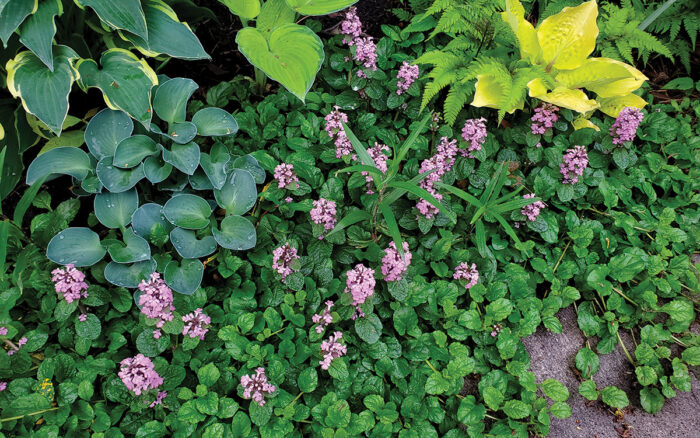
The further the spacing, the fewer plants that are needed to cover an area. However, this also means it takes more time for bare areas of ground to be covered. Because each new spurt of growth from a ground-cover plant takes place in a single season, the spacing should dictate how many years you are willing to wait for the ground cover to completely fill bare spaces. During installation, pay attention to the growth rate and spacing instructions listed on the plant tags. Knowing the growth and expansion method of a plant you want to use as a ground cover will help you determine proper placement when planting and prevent future frustration.
Ascending roots
Plants with traditional root systems are considered ascending in growth and form clumps with limited spread. These plants, such as ‘Herman’s Pride’ yellow archangel, become ground covers only by being packed tightly together.
 |
 |
Ground covers also spread by seed
A few ground covers spread predominantly by seed, such as yellow corydalis, whereas others might spread by both rhizome and seed, such as golden ragwort. When plants spread by seed, consider outlying areas where that seed may also spread when planting. Such plants are best used for filling large areas.
Rhizomes and stolons spread at variable rates
Both rhizomes and stolons produce new plants at nodules along their length but remain connected to the mother plant. Rhizomes spread underground, while stolons spread aboveground. Plants with short-creeping rhizomes or stolons grow to a moderate width, and ones with long-creeping rhizomes or stolons extend quite far. Plants with short-creeping rhizomes, such as Japanese painted ferns, need about 1 to 2 feet of spacing; plants with long-creeping stolons, such as periwinkle, often exceed 3 feet or more. In theory, extended growth each season is indefinite.
Ed Lyon is the director of Reiman Gardens at Iowa State University in Ames, Iowa, and the author of Growing the Midwest Garden.
Illustrations: Tommy Solano-Szostek
Fine Gardening Recommended Products

The New Organic Grower, 3rd Edition: A Master's Manual of Tools and Techniques for the Home and Market Gardener, 30th Anniversary Edition
Fine Gardening receives a commission for items purchased through links on this site, including Amazon Associates and other affiliate advertising programs.

Plant Covers Freeze Protection 10 ft x 30 ft Floating Row Cover 0.9oz/yd²
Fine Gardening receives a commission for items purchased through links on this site, including Amazon Associates and other affiliate advertising programs.
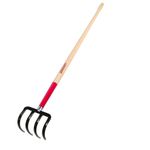
Razor-Back Potato/Refuse Hook
Fine Gardening receives a commission for items purchased through links on this site, including Amazon Associates and other affiliate advertising programs.


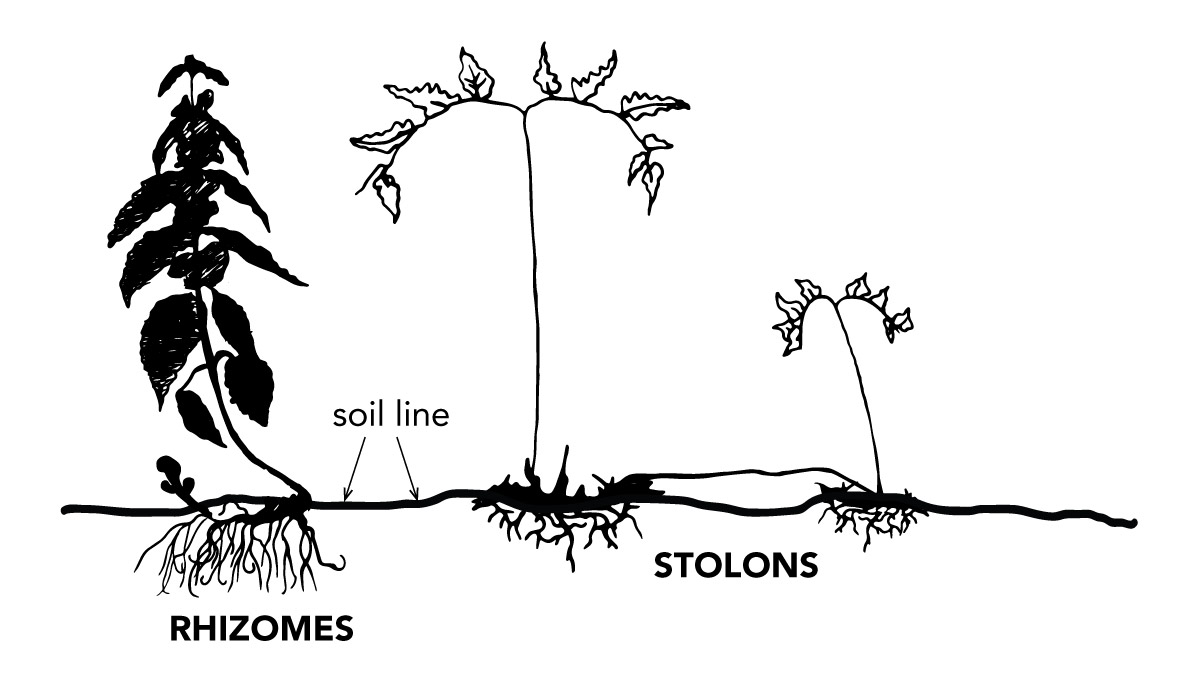


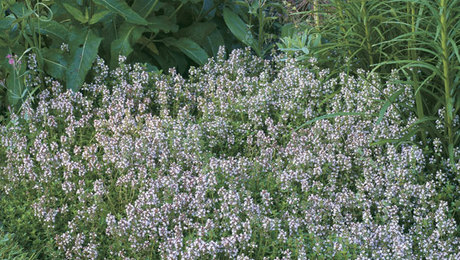
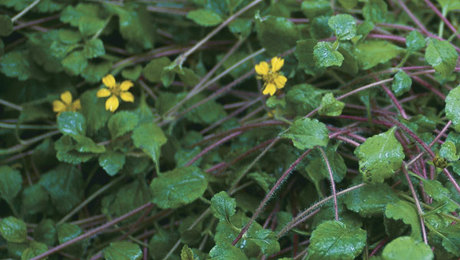













Comments
Log in or create an account to post a comment.
Sign up Log in